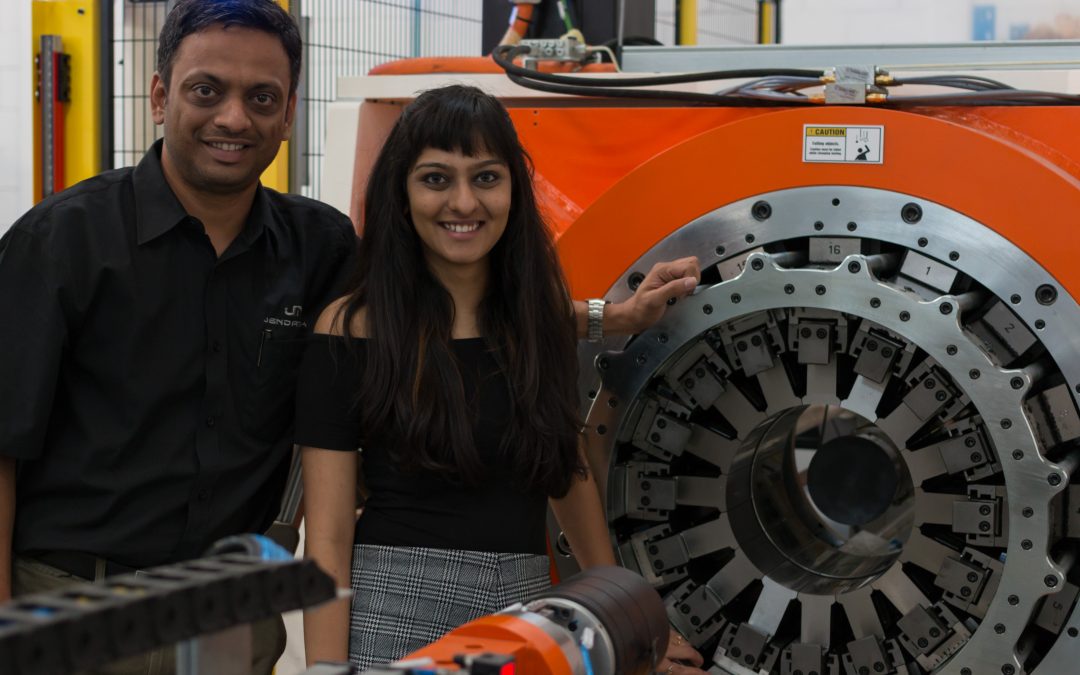Part and parcel of Jendamark India’s programme to help the automotive industry achieve the desired Bharat Stage 6 emission norms are canning lines for Tier 1 suppliers like Sharda Motors, Faurecia, Cummins and Tenneco.
Essentially, the lines assemble the canning section of the catalytic converter, which is an emission reduction device incorporated into the exhaust system of a vehicle.It is made up of a coated monolith and intumescent mat inside a stainless steel can. The mat acts like a spring and, when compressed, exerts pressure to hold the monolith inside the can.
“In its simplest form, the device converts hydrocarbons, carbon monoxide and nitrogen oxides into water, carbon dioxide and nitrogen. Using catalysts like platinum, palladium and rhodium, it takes in harmful gases and puts out less harmful ones,” explains Jendamark India CEO Himanshu Jadhav.
Assembling the canning section of the converter requires a great deal of accuracy, which is why most of Jendamark’s canning lines are semi- to fully automated, incorporating a wide variety of robotic, electronic and mechanical components to reduce the risk of human error, says Jadhav.
CHANGING NORMS
“As anti-pollution efforts ramp up worldwide, the catalytic industry is now worth billions of dollars and growing at a rapid rate, with new technologies continuously being implemented.”
Naturally, he says, keeping up with the burgeoning industry presents a number of challenges. “Because of varying global emission norms, catalytic convertors have become larger and there are more irregular and non-round shapes than before,” Jadhav says.
“At the same time, the canning lines are required to turn out larger volumes, with shorter cycle times.”
MEETING CHALLENGES
To deal with the ever-present challenges, Jendamark developed standard machines that accommodate at least 90% of the odd-shaped parts, while the small margin that do not fall within the standard part range are handled by custom-designed machines.
“We design the lines according to the customer’s specifications and deliver a product that outputs the volumes and cycle times required,” Jadhav says. Another innovation born of necessity is the hybrid line, capable of producing pre-and post-sizing parts using common equipment.
“We have created a prototype division that is helping Tier 1 suppliers and original equipment manufacturers with part and process development, as well as manufacturing prototype parts for use in test vehicles.”
ADDING ADBLUE
In addition to the standard canning lines, Jendamark also produces complete catalytic converter assembly systems with AdBlue technology. As Jadhav explains, AdBlue is a reagent, comprised of a synthetic urea solution, that is injected into the exhaust gases of modern diesel-powered vehicles, which emit more smog-causing nitrogen oxides than petrol engines.
“With the assistance of the catalytic converter, AdBlue changes toxic exhaust gas into harmless nitrogen and steam for cleaner emissions. It’s an essential element in modern vehicles fitted with a Selective Catalytic Reduction (SCR) system, which helps to meet the levels required under the Bharat Stage Six and Euro Six norms.”
